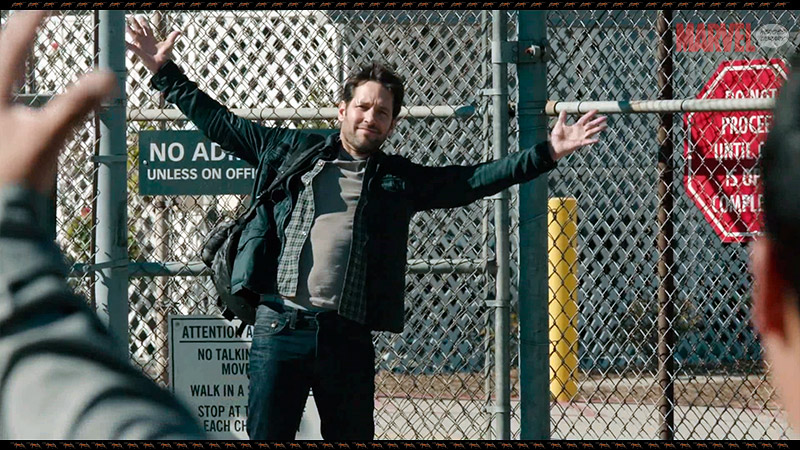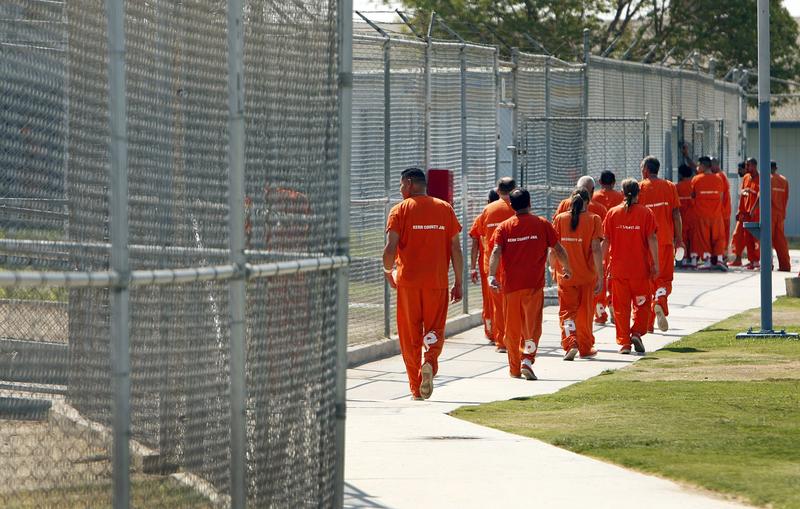FREEDOM.

Freedom is our right as an American.
We have an “unalienable right” to liberty.
In fact, the U.S. has always believed in, fought to protect, and sacrificed for these rights.
Our country is even known as “The Land of the Free.”
Then why do we deny 2,200,000 Americans these rights?
Why do we have the highest number of incarcerated people per capita in the whole world?
WELCOME TO THE PRISONER’S DILEMMA
I would first like to start with a story:
“At the age of nineteen, I got into a fist-fight with a stranger at a bar
and was sentenced to four years of imprisonment. I knew my life
would never be the same. Due to 30 regretful seconds, who I am and all
that I’d done, was covered by the shadow of my assault charges, so I
acted on my best behavior in order to earn privileges and return to the
outside world as soon as possible. Later, as a reward, I was allowed to leave
during the day, at which I worked at a CD shop where I was very dedicated
and loyal. Around the time I finished my prison sentence, I was verbally
offered a manager position at the store, but soon before the interview,
I received the paperwork application, that had a question that asked
whether or not I had any unspent criminal convictions. Even though my
sentence was finished in custody, it would still take several more years for
my conviction to be spent. Before the day was over, not only was I without
a job, but I was refused the manager position without any explanation at
all. Despite my efforts to present myself as employable, I spent
eight years after being released from prison, struggling to find work.”
Let’s take a step back.
During junior year of high school, one assignment I had to write a persuasive speech on an issue affecting any country besides the United States for my AP Language & Composition class. A lot of my classmates chose subjects such as nuclear energy, or the water crisis, and some other interesting niche topics too, but I had trouble coming up with an idea. I have always been interested in the U.S. education system, since it definitely lacks compared to other developed countries, like in Europe. However, that was an American issue, and I needed to focus on a foreign concept. During my research comparing America to European countries, I stumbled upon information about recidivism rates, or the
Likelihood of convicted criminals committing another offense
I found a lot of fascinating information, research, and policies, and ended up writing my speech about proper rehabilitation of convicts in England. I spent a lot more time on that paper than most of my other projects, and I developed a strong passion for this topic.
WHAT IS THE PRISONER’S DILEMMA?
The main dilemma is that 76.6% of released prisoners are arrested again in 5 years.
And even more surprising, about half of those arrests occur in the first year. Of all released prisoners, over half return to prison after three years, and the number continues to grow past 5 years out in society.
The initial reaction might be that because they were arrested in the first place, then of course they are more likely to commit another crime. But the real issue isn’t with the prisoners themselves. Instead, it is employers perception of hiring those released from prison.

The figure above shows employers’ WILLINGNESS to hire an ex-offender, illustrating that 40% “absolutely” or “probably” won’t. But here are some facts from the same research:
In the preceding year, for example:
…20% of employers claimed they hired at least one ex-offender.
…Of employers willing to hire an ex-offender, around 60% said they had hired at least one ex-offender in the past year
…Among employers openly unwilling to hire, only 7% had hired an ex-offender.
…The vast majority of firms hiring ex-offenders noted that those hired
– were not fresh from prison
– had work experience after they were released
The clear truth is that without without work, previous criminals are incentivized to return to crime. If we want to reduce crime, reduce recidivism, and elevate our economy, we need to better analyze and understand why ex-convicts are returning to prison.
Yes, part of it IS better convict rehabilitation, but we also NEED to be more informed and change our social perspectives of former convicts, especially employers’ mindsets about them so that we can facilitate change for the better.


In this blog series, I will be discussing the ailments of our criminal judicial system, such as racial bias, mass incarceration, factors that affect crime, and recidivism. But what I really want the main focus to be is the rehabilitation and reintegration process. Based on the research I’ve done, I truly think that we could do so much good for our country if we put the energy and resources into fixing society’s perspective about ex-convicts, implementing better programs for those trying to get their life back together, and more.
I’m really excited to dive into this topic with you all for this semester as we explore the philosophical, legal, and political actions that we can take to come together and bring an end the prisoner’s dilemma, and do our best to aid the 77% so that they don’t return to a life of crime.
Thanks for reading, this is The Prisoner’s Dilemma by Nicholas Bodie
Sources:
- www.theguardian.com/careers/2017/jun/28/after-the-why-employers-should-give-ex-offenders-a-working-chance.
- https://www.irp.wisc.edu/publications/focus/pdfs/foc232h.pdf
- https://harvardpolitics.com/recidivism-american-progress/#:~:text=The%20U.S.%20has%20one%20of,their%20employment%20rates%20once%20released.
- https://www.sentencingproject.org/
- https://stoprecidivism.org/?gclid=Cj0KCQiAraSPBhDuARIsAM3Js4rXc7HSUeGrq49qSTxDlJDvNrB0D-O4MjE4GUybPGdtFC5DmPqH8iQaAqWTEALw_wcB
Image Sources:

I had never really thought about why criminals were more likely to return to prison after being released, and your logic made sense. Since employers are not really likely to hire an ex-convict, they might feel that they have no choice but to return to crime. That story in the beginning about the fist fight also surprised me. I could never imagine spending years in jail just for about a minute of slip up. And additionally, the long term consequences would definitely make me lose hope at attaining my previous place in society as a well-meaning citizen. There should definitely be change and reform in our prison system, regarding rehabilitation and also race, since those who are African American or from Latino communities are more likely to be imprisoned for things (or for longer) than other backgrounds.
I think perhaps the largest example of a system that fulfills the point that you are trying to bring up is Finland. Finland has the lowest recidivism rate in the world because prisoners are treated like human beings. They can get education, jobs, and there are active efforts to help ex-convicts get jobs. Our system is flawed and there are clear examples of better ones.
I completely agree that we as a society need to change our mindset on how we think about (and ultimately treat) people who are currently in prison or have been prison in the past. In addition to the statistics about the race and economic backgrounds of prisoners you mentioned, I think it’s mind-boggling that we prevent over two million people from seeking opportunities and bettering their lives. Even if you forget about the moral argument for treating prisoners better, the fact that so many people are unable to seek stable employment and have autonomy over their lives makes no sense from an economic perspective.